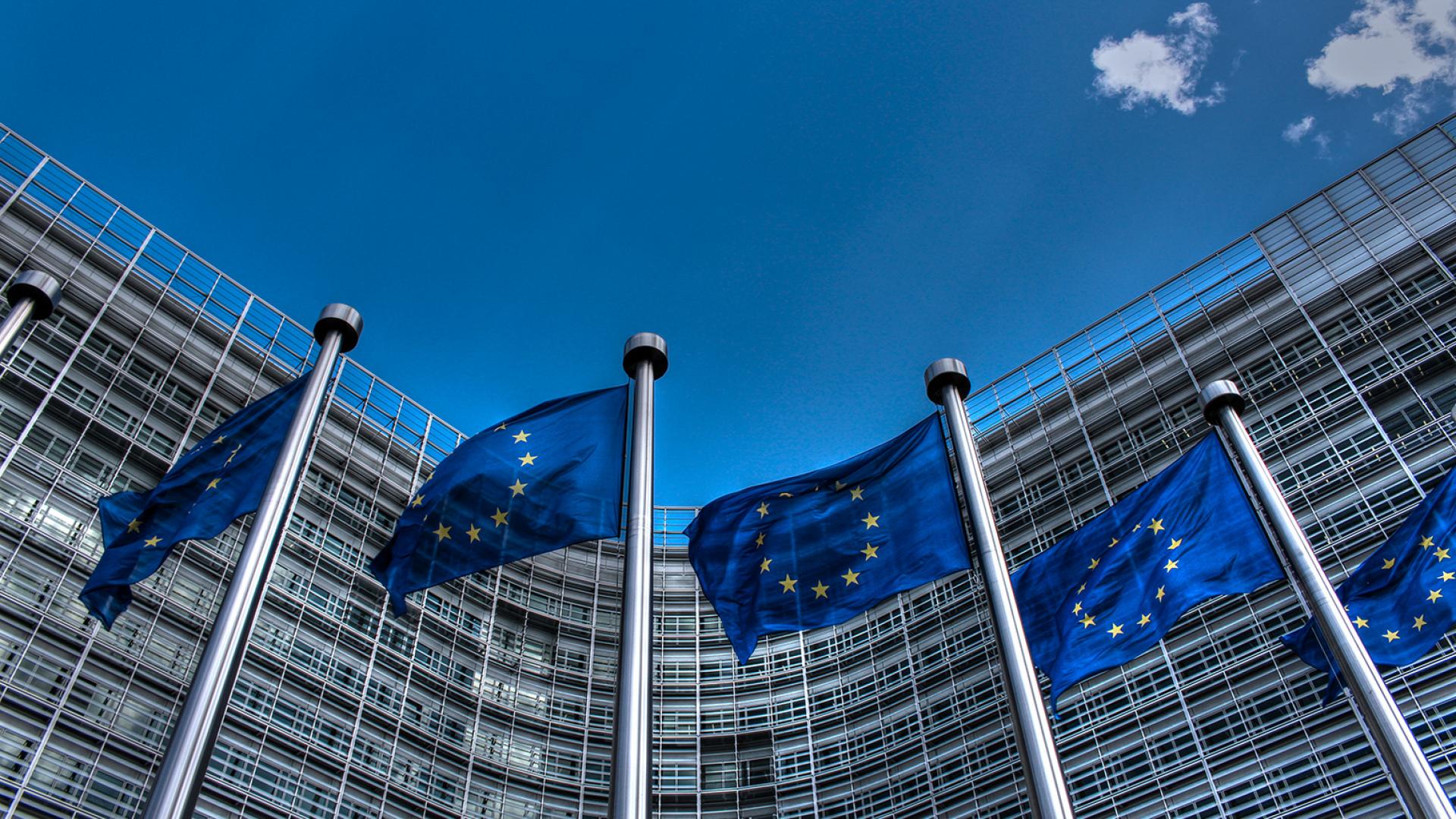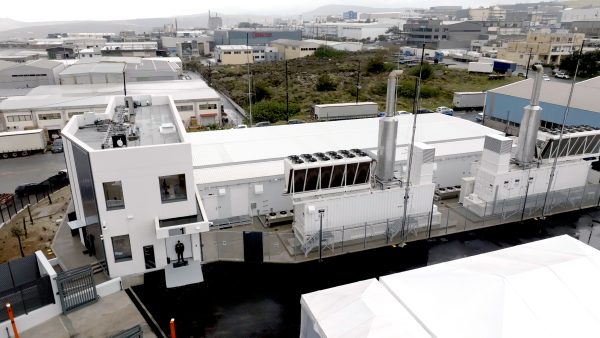
The European Commission has approved, under EU State aid rules, €1 billion Greek measures to support two projects for the generation and storage of renewable energy in Greece. The measures contribute to achieving Greece’s climate and energy targets, as well as the objectives of the European Green Deal and ‘Fit for 55’ package, by enabling the integration of renewable energy sources in the Greek electricity system.
The Greek measures
Greece notified the Commission of its plans to provide support to two projects for the generation and storage of renewable energy for a total budget of €1 billion.
The Faethon Project entails the construction of two photovoltaic units, each with a capacity of 252 MW, along with integrated molten-salt thermal storage units and an extra-high voltage substation. This project aims to enable electricity generation during the day and to allow for the surplus energy to be stored. The surplus will be converted into electricity to be used during times of peak consumption, such as evenings and nights.
The Seli Project entails the construction of a 309 MW photovoltaic unit with an integrated lithium-ion battery energy storage system. This project aims to optimise electricity generation and grid stability.
Both constructions are planned to be completed by mid-2025.
The aid will take the form of a two-way contract for difference over a period of twenty years. The strike price will be determined by a technical committee on the basis of, inter alia, a cost-benefit analysis and a risk assessment. The reference price will be calculated as a monthly output-weighted average of the market price of electricity in the day-ahead markets.
When the reference price is below the strike price, the beneficiaries will be entitled to receive payments equal to the difference between the two prices. However, when the reference price is above the strike price, the beneficiaries will have to pay the difference to the Greek authorities. The scheme will ensure long-term price stability for the renewable energy producers by guaranteeing a minimum level of return, while at the same time ensuring that the beneficiaries will not be overcompensated for periods when the reference price is higher than the strike price. Support for the projects will be paid annually over a period of 20 years.
Both projects are expected to increase the annual net renewable energy in the Greek electricity mix by approximately 1.2 TWh. This represents around 2.1% of Greece’s total electricity production in 2020 . In addition, the two projects will boost renewable energy production by 8% compared to 2020 levels. The storage units in both projects will help decouple electricity dispatch from production, thereby mitigating the intermittent nature of solar power and enhancing the stability of the Greek electricity grid.
The Commission’s assessment
The Commission assessed the scheme under EU State aid rules, in particular Article 107 (3)(c) of the Treaty on the Functioning of the European Union (‘TFEU’), which enables Member States to support the development of certain economic activities subject to certain conditions, and the 2022 Guidelines on State aid for climate, environmental protection and energy (‘CEEAG’).
The Commission found that:
- The measures facilitate the development of an economic activity, in particular renewable electricity combined with storage plants. The aid is necessary and appropriate to support decarbonisation of the electricity sector, in line with the European and national environmental targets.
- The aid has an “incentive effect” as the beneficiaries would not carry out the investments in decarbonisation to the same extent without the public support.
- The aid has a limited impact on competition and trade within the EU. In particular, the aid is proportionate, and any negative effect on competition and trade will be limited in view of the design of the contracts for difference, which will ensure that the aid amount is kept to the minimum.
- The Greek authorities will ensure that the know-how obtained as a result of the projects will be made available to any company willing to develop such technologies in Greece.
On this basis, the Commission approved the Greek measures under EU State aid rules.
Background
The Commission’s 2022 CEEAG provide guidance on how the Commission assesses the compatibility of environmental protection, including climate protection, and energy aid measures which are subject to the notification requirement under Article 107(3)(c) TFEU.
The Guidelines create a flexible, fit-for-purpose enabling framework to help Member States provide the necessary support to reach the European Green Deal objectives in a targeted and cost-effective manner. The rules involve an alignment with the important EU’s objectives and targets set out in the European Green Deal and with other recent regulatory changes in the energy and environmental areas and will cater for the increased importance of climate protection.
With the European Green Deal Communication in 2019, the Commission set an objective of net zero emissions of greenhouse gases in 2050 that is enshrined in the European Climate Law. In force since July 2021, the law also introduced the intermediate target of reducing net greenhouse gas emissions by at least 55% by 2030. Through the adoption of the ‘Fit for 55′ legislative proposals, the EU has in place legally binding climate targets covering all key sectors in the economy.
Energy storage is a crucial solution to provide the necessary flexibility, stability, and reliability for the energy system of the future. System flexibility is particularly needed in the EU’s electricity system, where the share of renewable energy is estimated to reach around 69% by 2030 and 80% by 2050. The Commission adopted in March 2023 a list of recommendations to ensure greater deployment of energy storage, accompanied by a Staff Working Document, providing an outlook of the EU’s current regulatory, market, and financing framework for storage and identifies barriers, opportunities and best practices for its development and deployment.
The non-confidential version of the decision will be made available under the case number SA.103399 in the State aid register on the Commission’s competition website once any confidentiality issues have been resolved. New publications of State aid decisions on the internet and in the Official Journal are listed in the Competition Weekly e-News.
Source: tovima.com
Latest News

Greek €200M 10Y Bond to be Issued on April 16
The 3.875% fixed-interest-rate bond matures on March 12, 2029, and will be issued in dematerialized form. According to PDMA, the goal of the re-issuance is to meet investor demand and to enhance liquidity in the secondary bond market.

German Ambassador to Greece Talks Ukraine, Rise of Far Right & Tariffs at Delphi Economic Forum X
Commenting on the political developments in his country, the German Ambassador stressed that it was clear the rapid formation of a new government was imperative, as the expectations across Europe showed.

Athens to Return Confiscated License Plates Ahead of Easter Holiday
Cases involving court orders will also be excluded from this measure.

Servicers: How More Properties Could Enter the Greek Market
Buying or renting a home is out of reach for many in Greece. Servicers propose faster processes and incentives to boost property supply and ease the housing crisis.

Greek Easter 2025: Price Hikes on Lamb, Eggs & Sweets
According to the Greek Consumers’ Institute, hosting an Easter dinner for eight now costs approximately €361.95 — an increase of €11 compared to 2024.

FM Gerapetritis Calls for Unified EU Response to Global Crises at EU Council
"Europe is navigating through unprecedented crises — wars, humanitarian disasters, climate emergencies," he stated.

Holy Week Store Hours in Greece
Retail stores across Greece are now operating on extended holiday hours for Holy Week, following their Sunday opening on April 13. The move aims to accommodate consumers ahead of Easter, but merchants remain cautious amid sluggish market activity.

Green Getaway Ideas for Easter 2025 in Greece
Celebrate Easter 2025 in Greece the sustainable way with eco-farms, car-free islands, and family-friendly getaways rooted in nature and tradition.

Civil Protection Minister Details Summer Firefighting Plans at Delphi Forum
At the 10th Delphi Economic Forum, Minister of Climate Crisis and Civil Protection Yiannis Kefalogiannis discussed Greece's plans for the upcoming fire season.

How Shops and Markets Will Operate During Easter Holy Week
The Easter holiday schedule has been in effect since April 10, with retail stores open Palm Sunday, and most supermarkets also operating to meet consumer demand for Easter shopping








































 Αριθμός Πιστοποίησης
Αριθμός Πιστοποίησης